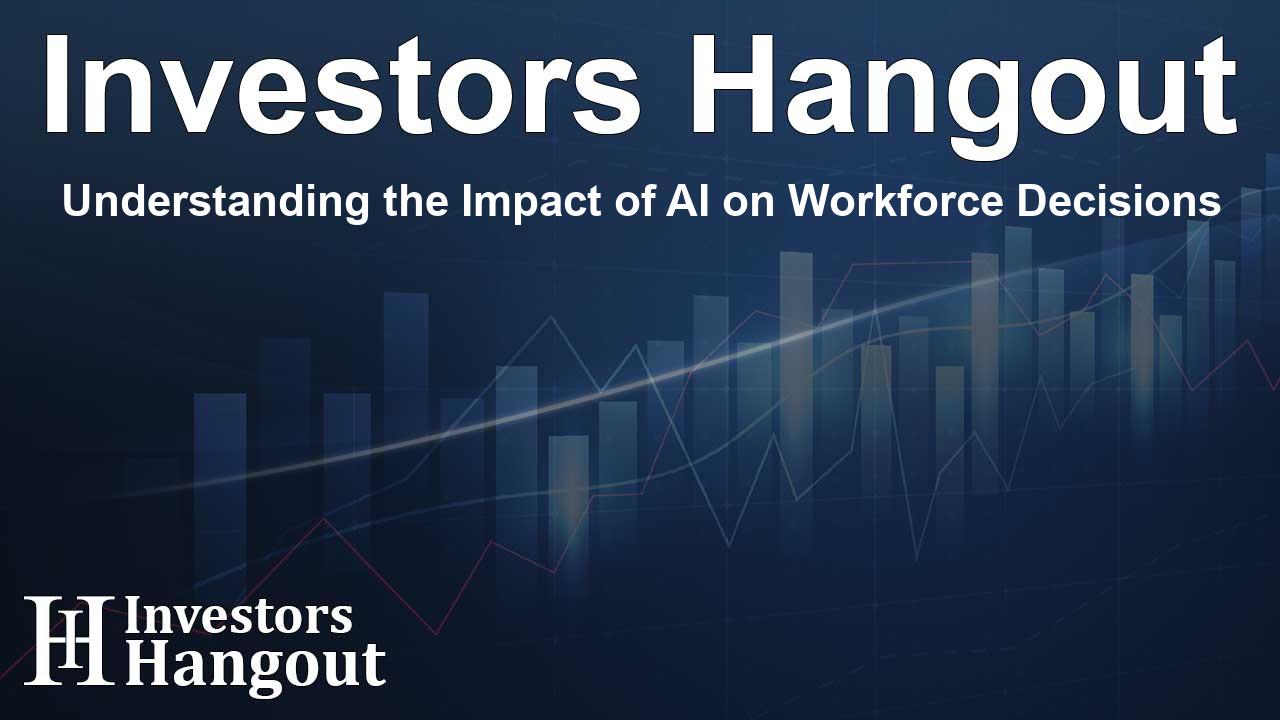Understanding the Impact of AI on Workforce Decisions

AI Integration and Employee Decisions
In today's evolving business landscape, the integration of artificial intelligence (AI) is becoming increasingly prevalent. A recent study indicates that many company leaders are grappling with the complexities surrounding the deployment of AI in their workforce. Surprisingly, around 39% of executives have had to make redundancies attributed to AI implementation. Alarmingly, over half of these leaders (55%) acknowledge that their decisions regarding employee layoffs were misguided.
The Shift in Perception Towards AI
Business leaders are expressing a noted decline in anxiety about AI replacing human roles, with only 48% feeling concerned. This marks a reduction from the previous year, which witnessed 54% of executives harboring such fears. Despite this shift, a growing number of leaders are becoming aware of their diminishing responsibility towards safeguarding their workforce, with 62% conceding that they are not actively protecting against layoffs due to AI.
Reskilling Initiatives
The conversation around AI transformation heavily features the urgent requirement for reskilling. An impressive 80% of business leaders are committed to retraining their employees to collaborate with AI effectively. Furthermore, 41% have enhanced their learning and development (L&D) budgets to ensure that their workforce is adequately trained to leverage AI technologies.
Concerns About Workforce Management
Despite optimistic outlooks, the study reveals significant fears among leaders regarding unregulated AI usage, with 47% highlighting this as a major concern. To combat this, 51% of leaders are proactively instituting internal policies regarding AI's application within their firms. These steps illustrate a strategic pivot towards viewing AI as a partner, necessitating careful management rather than a straightforward replacement for human employees.
Addressing the Skills Gap
The research underscores a pressing issue: skill deficits in AI understanding than 35% of organizations identify this lack as a principal hurdle in their deployment of AI. Additionally, businesses are seeking assistance from specialized third parties to enhance their workforce's AI readiness, a move that has increased by 6% since the previous year.
Investment in AI Technologies
Interest in AI remains robust, with a staggering 72% of executives believing AI will be the key driver of workforce innovation over the next three years. Investment trends indicate that 80% of those who invested in AI previously are planning to enhance their financial commitments going forward.
Future Outlook on AI
Confidently, 76% of business leaders are optimistic that their organizations will harness AI's full potential by 2025. However, a significant minority, constituting 27%, concede they lack a well-defined strategic roadmap for AI implementation. Moreover, 38% are still unclear about AI's profound effects on their operations.
Conclusion on AI and Business Strategy
As articulated by Oliver Shaw, CEO of Orgvue, while confidence in AI remains, the reality may not align with expectations. Business leaders must recognize that AI’s promise relies heavily on their proactive engagement with workforce transformation and skilled advancement. Investing in AI without a solid plan risks not only profitability but employee morale.
About Orgvue
Orgvue stands out as an organizational design and planning platform dedicated to facilitating business transformations through an understanding of workforce capacities and tasks. The platform connects strategic objectives with structural organization, ensuring businesses remain adaptable in a fluctuating work environment. Leading enterprises globally leverage Orgvue to visualize their present and future organizational landscapes to make more informed decisions.
Frequently Asked Questions
What percentage of businesses have made redundant employees due to AI?
Approximately 39% of business leaders have made employees redundant as a direct result of AI deployment.
How do leaders feel about AI replacing jobs?
Only 48% of leaders remain concerned about AI replacing human roles, a decrease from previous years.
What is the focus of reskilling initiatives?
The primary focus of reskilling initiatives is to prepare employees to work effectively alongside AI technologies.
What challenges do organizations face regarding AI?
A major challenge is the lack of AI expertise, with 35% of organizations identifying this as a significant barrier to successful implementation.
How confident are leaders about their AI investment plans?
76% of business leaders are confident that their organizations will fully capitalize on AI capabilities by 2025.
About The Author
Contact Caleb Price privately here. Or send an email with ATTN: Caleb Price as the subject to contact@investorshangout.com.
About Investors Hangout
Investors Hangout is a leading online stock forum for financial discussion and learning, offering a wide range of free tools and resources. It draws in traders of all levels, who exchange market knowledge, investigate trading tactics, and keep an eye on industry developments in real time. Featuring financial articles, stock message boards, quotes, charts, company profiles, and live news updates. Through cooperative learning and a wealth of informational resources, it helps users from novices creating their first portfolios to experts honing their techniques. Join Investors Hangout today: https://investorshangout.com/
The content of this article is based on factual, publicly available information and does not represent legal, financial, or investment advice. Investors Hangout does not offer financial advice, and the author is not a licensed financial advisor. Consult a qualified advisor before making any financial or investment decisions based on this article. This article should not be considered advice to purchase, sell, or hold any securities or other investments. If any of the material provided here is inaccurate, please contact us for corrections.
